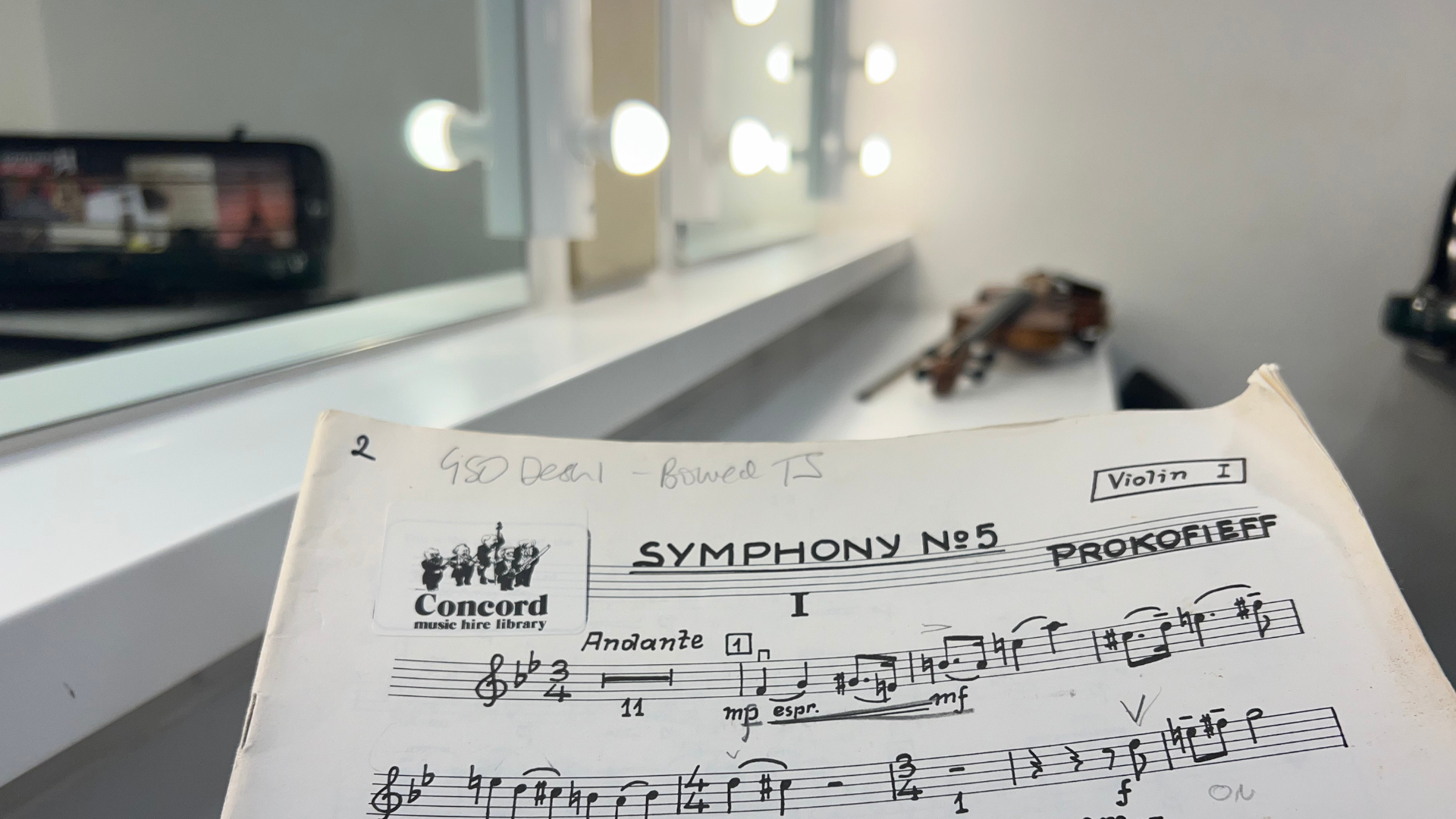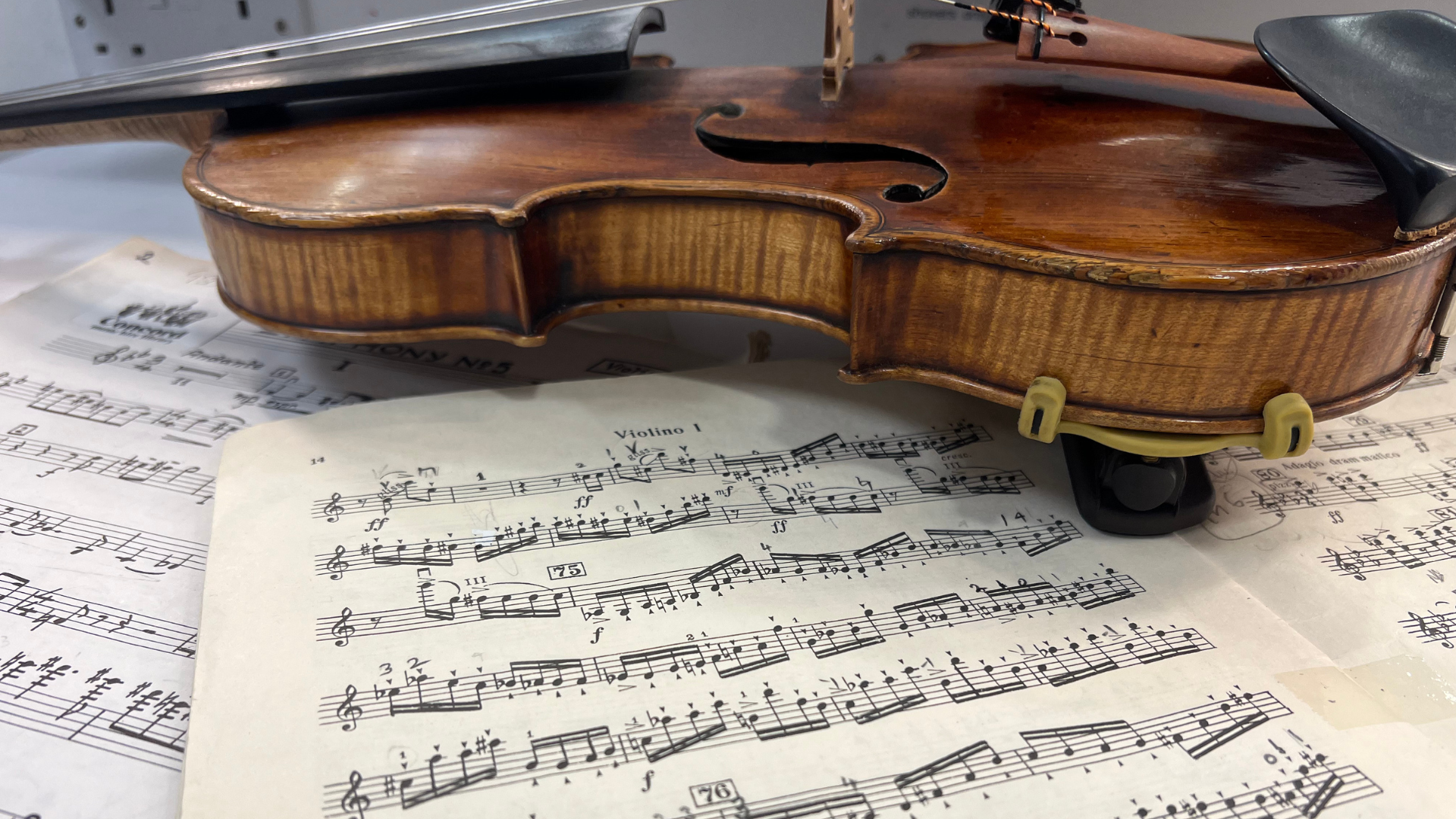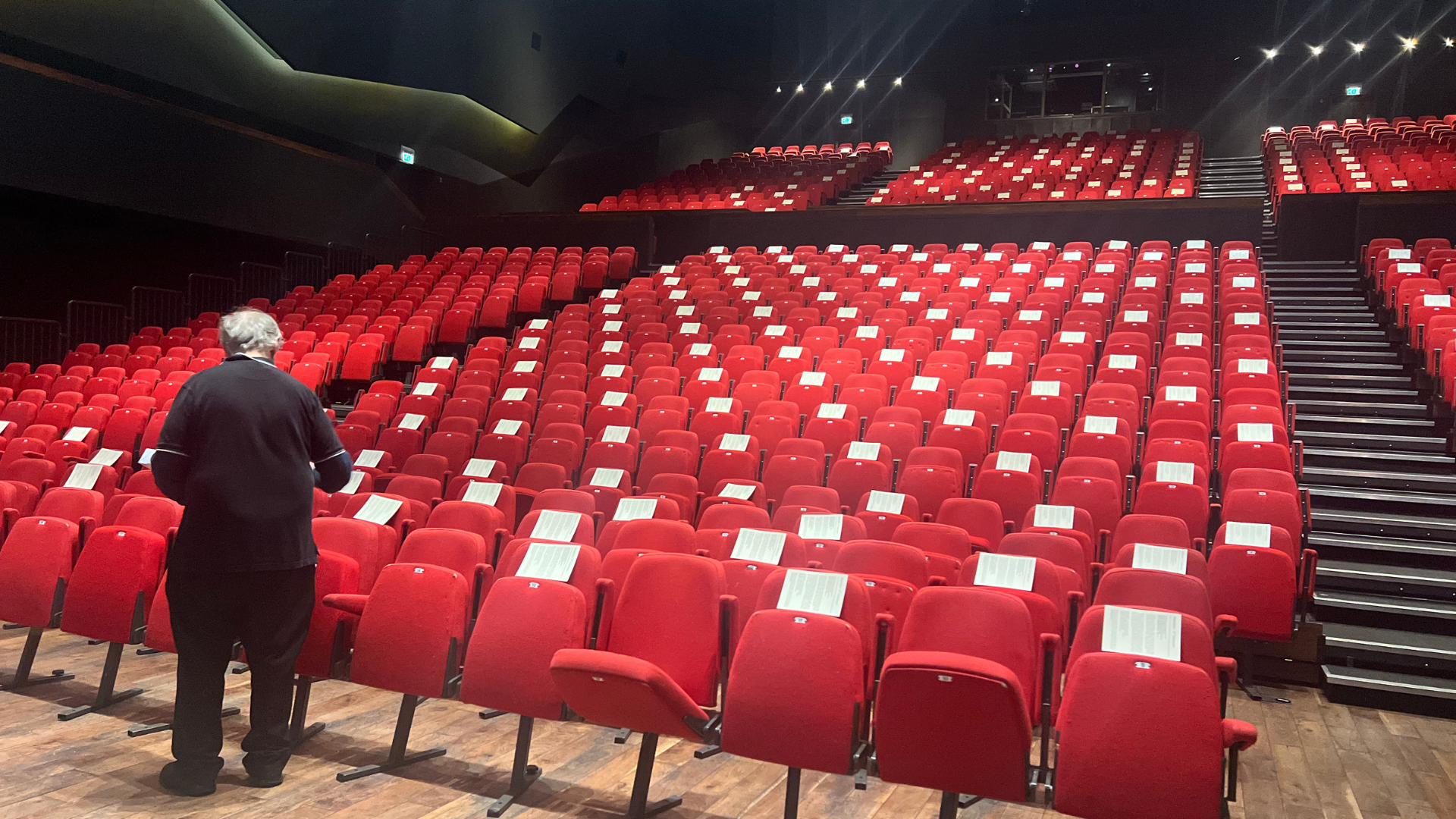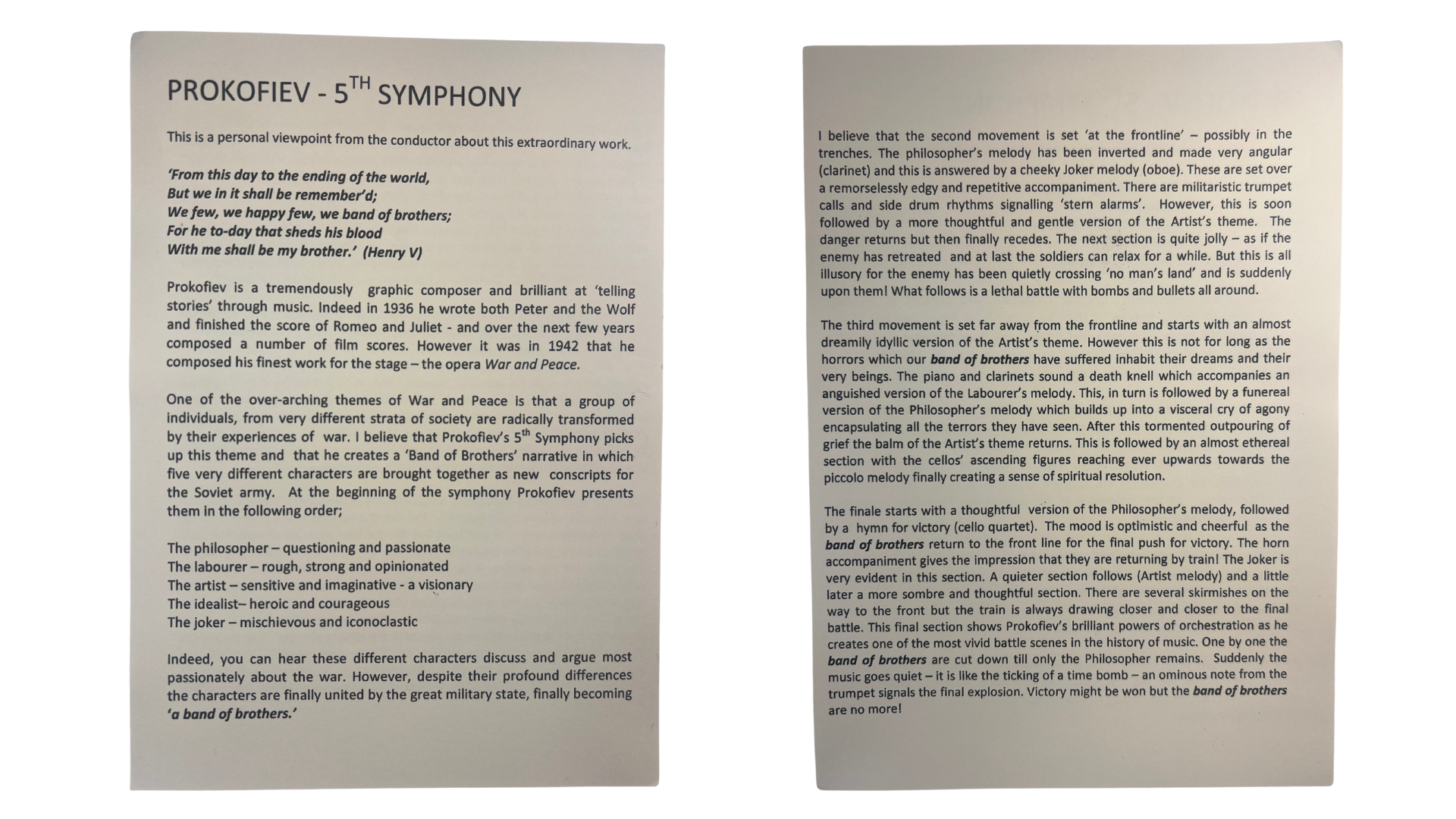Before the onslaught of the Christmas season, a precious half day of study time:

I’m working on Prokofiev’s Romeo and Juliet Suite, and on his 5th Symphony, which was written in the summer of 1944.
That tumultuous period of history has deep parallels with today; geopolitical instability, intense questions of identity and political philosophy, and a fear of an unknown future, to name just a few.
Music like Prokofiev’s 5th Symphony resonates strongly, I think, with the unease of the times, through its intensity, density and complex emotional narrative structures.
But his writing speaks to a more timeless understanding too. A fundamental belief in the power and innate decency of the human spirit.
It’s so easy to forget this in times of conflict, when so many lose their heads, become angry or distressed, or focus on blame.
If survival becomes a priority, it’s all too easy for what’s urgent to displace what’s important. What’s the point of Art when people are desperately trying to survive?

In a recent rehearsal break, discussions of Prokofiev drift onto the topic of Art. What makes good art great?
“The thing about truly Great art”, says my ever-thoughtful conductor Darrell Davison, “is that it’s like a transforming mirror. It reflects back the human condition. It changes what you see and who you are.”
That sounds about right to me.


So even though the phrase ‘fiddling whilst Rome burns’ echos through my mind from time to time whilst I work (if you substitute ‘Rome’ with ‘The Planet’, that could literally be my job description in this era of climate change…!), I still think it’s at times like these when, as a society, we really can’t afford to lose sight of who we are.
And yes - that sense of who we are will change and evolve. Often, we may not be entirely sure, or may not know. But that’s OK. It’s OK to be lost sometimes - perhaps even desirable, as it forces us to stop and question our directions.
But what we can’t do is to stop questioning. The moment we stop asking questions, we risk losing sight of who we are entirely.
And human society is better than that.
Can be better than that. Should be better than that.
I feel a responsibility to try and give the very best of my energy and understanding to Prokofiev’s music.
Because at the next performance, there’ll be someone in the audience who is in deep need of a metaphorical mirror; of a moment for reflection and change.
That’s the music's job, of course. And it'll do that (if people listen properly), because it’s vivid music with a lot to say. It's great art.
My job however, is to make sure the mirror is clean, reflective, and perfectly presented at just the right time.
So I make a cup of tea, and crack on with my screeching.
Those scales won’t practice themselves!
Simon Hewitt Jones c/o 1st Floor Studios, 41 Whitcomb Street, London, WC2H 7DT, United Kingdom
T: +44 (0)20 3051 0080, E: info@simonhewittjones.com